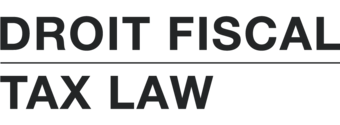
Photo by Michał Parzuchowski
When determining whether a loss is deductible, or conversely, whether income is taxable, there must first be a “source of income” or, in other words, a “business”. A business has traditionally been understood to mean anything that occupies the time, attention and labour of a person for the purpose of profit. In Stewart, the Supreme Court of Canada (“SCC”) set out the analytical framework to differentiate a business from a personal activity (or hobby). The SCC suggested a two-step approach:
- Is the activity of the taxpayer undertaken in pursuit of profit, or is it a personal endeavour?
- If it is not a personal endeavour, is the source of the income a business or property?
The first step is the one that is the most challenging. The second step assumes that there is a source of income and is only concerned with characterizing that source of income as either business income or property income (passive income that derives from the ownership of property, such as interest, dividend or rent).
Going back to the first step, when there is ambiguity regarding whether an activity constitutes a business, we must determine whether the taxpayer intended to carry on the activity for profit and whether there is evidence to support such intention. Such evidence can consist of “objective standards of businesslike behaviour” that we would normally expect from anybody serious about going into business, such as the taxpayer’s profits and losses from prior years, the taxpayer’s training, the taxpayer’s intended course of action and the capability of the undertaking to show a profit. This list is not exhaustive and is not meant to second-guess the decisions that the taxpayer made.
Whether a source of income exists is a question of fact. Each case must be analysed based on its own merit. Most of the time, taxpayers try to argue that an activity was a source of income in order to claim business losses and use those losses to offset against other sources of income. However, when an activity is profitable and there’s a “hobby” element to it, taxpayers will argue that the activity was exactly that, a hobby, to avoid being taxed.
Two recent cases illustrate the above:
In Sennaike, the appellant worked full-time and also sold Amway products. He incurred losses from his Amway activities, which he used to offset against his employment income. He had his own page on the Amway website, met customers to try to sell products, and participated in various programs offered by Amway to grow his business acumen. The appellant claimed that there was no “personal element” to his Amway activities. They were not “hobbies”. The Crown argued that the appellant’s participation in Amway was predominantly a personal endeavour. The Court agreed with the Crown and found that the appellant’s participation in Amway contained a significant personal element and was not undertaken in a sufficiently commercial manner to constitute a source of income. The way the appellant approached his activities with Amway and how he calculated his profits and losses were so ill-advised that it undermined his contention that he was operating in the pursuit of profit.
In Fournier-Giguère, the appellants were poker players. They claimed that the earnings they made were not taxable because their poker activities were not a source of income. Alternatively, they alleged that the earnings were non-taxable under paragraph 40(2)(f) of the Income Tax Act (“ITA”) because poker was a “betting” game within the meaning of that provision. The appellants lost at the TCC. They appealed to the Federal Court of Appeal (“FCA”), but also lost. With regard to paragraph 40(2)(f) ITA, the FCA agreed with the TCC in that poker could not be equated to “lottery” or a “pool system of betting”. Although there’s an element of chance in poker, there’s also an element of skill. Further, although lottery winnings have traditionally been treated as “windfalls” (capital in nature), when certain criteria are met, it is possible for certain gambling-related income to be considered business income. On the issue of whether poker was a source of income, the FCA concluded that the TCC did not commit any “palpable and overriding error”. The TCC carefully considered the relevant factors in light of the evidence and found that the appellants’ poker activities were more than mere entertainment or recreation. They adopted a businesslike approach, such as planning their games, leveraging software, learning about their opponents’ habits, tracking their earnings, adopting risk management techniques, etc. Poker was their only source of income. They played poker to earn a living and were quite good at it. They were professional poker players.
